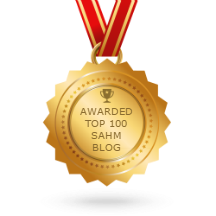“Every time we choose organic, we’re choosing a system that respects people, animals, and the planet,” said Alexandra Castillo, Philippines Coordinator for Promotions and Market Linkages at Naturland e.V. “Organic practices help protect the soil and water that sustain us and make sure that everyone can enjoy safe, healthy food now and in the future. Together with our partners, we work hand-in-hand with stakeholders across the value chain to turn these standards into everyday practice and support the shift toward more sustainable food systems.”
Castillo’s message reflects the growing global awareness that organic agriculture is not only a farming method but also a movement grounded in long-term environmental stewardship. Organic farming protects soil health, promotes animal welfare, and encourages biodiversity—three pillars essential to a sustainable and resilient future. Europe, in particular, upholds some of the strictest and most comprehensive standards for organic certification in the world. Through dedicated regulations, continuous monitoring, and rigorous inspections, the EU ensures that every stage of production—from the planting of seeds to distribution on store shelves—meets these high benchmarks.
Because of these stringent standards, organic practices provide practical and reliable pathways to support sustainability across the entire food value chain. Farmers benefit from methods that improve soil fertility and reduce reliance on synthetic inputs, while suppliers and manufacturers are able to guarantee authenticity and traceability. Restaurants, hotels, and retailers offering certified organic products gain the trust of consumers who increasingly seek transparency about where their food comes from and how it is produced. Labels such as the EU Organic Logo and the Naturland seal are more than certifications—they are symbols of credibility that signal responsible sourcing and ethical land management. These marks resonate strongly with today’s consumers, who value healthier choices and wish to contribute to positive environmental impact through their everyday purchases.
Naturland also highlighted ongoing initiatives that aim to expand the reach of organic products in the Philippines. One major effort is the campaign “European Organic: Nurturing Every Juan,” implemented by Naturland with support from the EU. The campaign’s goal is to make European-certified organic products more visible, accessible, and relatable to Filipino consumers by showing how organic can be seamlessly integrated into daily life. Through education, awareness drives, and partnerships with local retailers and food businesses, the program encourages consumers to make informed choices that benefit both personal well-being and the environment.
The association also co-organized the 10th Philippine Sustainability Movement alongside Pristine Solutions, a consultancy dedicated to advancing sustainability in the country. The annual event brings together sustainability organizations along with representatives from the hospitality, culinary, development, business, and public sectors. This year’s edition also saw participation from Naturland partners, including PYC Foods and One World Deli, demonstrating the growing network of local stakeholders committed to the organic mission.
Over the last decade, the Philippine Sustainability Movement has significantly contributed to raising awareness and driving the adoption of more responsible and ethical practices in the country’s hospitality and food industries. As it marks ten years of progress, the movement looks ahead with a renewed commitment to strengthening food systems anchored in transparency, accountability, and shared values. With organizations like Naturland and the EU working hand-in-hand with local partners, the vision of a more sustainable Philippine food landscape is no longer distant—it is steadily becoming reality.











.png)




 />
/>






.png)

No comments:
Post a Comment